April 29, 2024 | 12:49 GMT +7
April 29, 2024 | 12:49 GMT +7
Hotline: 0913.378.918
April 29, 2024 | 12:49 GMT +7
Hotline: 0913.378.918
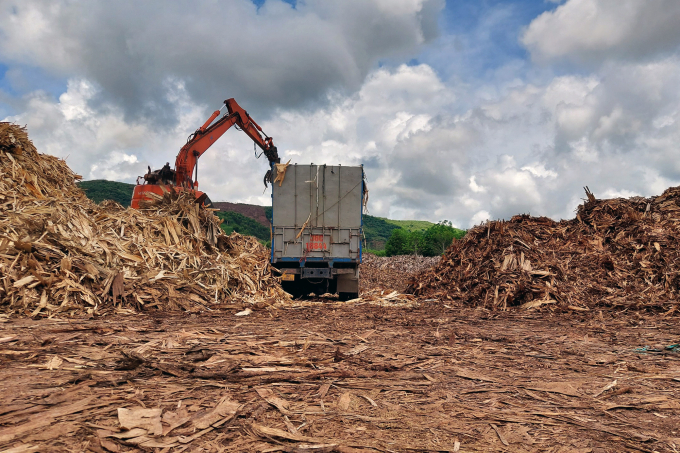
By-products during the forest products’ refining process are purchased and gathered by Thien Ly Petroleum Company to produce bio pellets. Photo: VD.
Thanh Hoa province has a large forest area, nearly 642,000 hectares. Specifically, the natural forest area is nearly 400,000 ha; the area with planted forests is nearly 250,000 ha.
In the past few years, Thanh Hoa has focused on planting FSC certified forests for processing and exporting to fastidious markets. Up until now, the province has nearly 20,000 hectares of forest certified with FSC standards, concentrated in Lang Chanh, Thach Thanh, and Quan Hoa...
Along with the development of afforestation, forest product processing companies and facilities also abundantly appear, but most of them still only process for domestic consumption, so the economic value is not high.
These activities create a source of redundant by-product which so far has been mainly thrown at the edge of the forest and burned,… Unless it is utilized to process into useful products, it will both cause waste and affect the environment.
Upon realizing the export potential of bio pellets made of wood processing’s by-products, in 2018, Thien Ly Petroleum Company invested in technology and built a factory to produce bio-capsules with a capacity of about 20 thousand tons of input materials per year in Hao village, Xuan Binh commune, Nhu Xuan district. This is a product with wide output and cheap input materials, so it is considered a potential field. No matter how much they were produced, bio pellets from Thien Ly Petroleum Company are always sold out.
However, in the beginning, due to the lack of access to advanced technology and production techniques, the company’s bio pellets were only sold for domestic consumption, mainly to industrial plants, burned to generate electricity from heating…
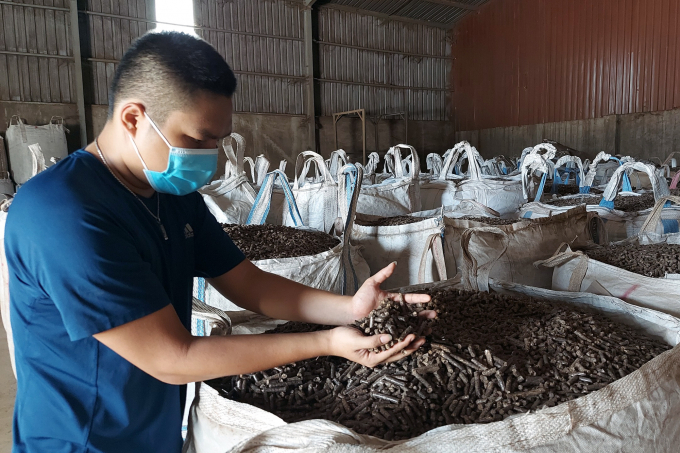
Bio-pellets of Thien Ly Petroleum Company are favored by the Japanese market. Photo: VD.
After researching market demand, studying more deeply, starting in 2020, Thien Ly Petroleum Company has successfully produced bio-capsules that are qualified to export to Japan, trusted by partners until the present date.
According to Mr. Bui Hong Hai, Deputy Director of Thien Ly Petroleum Company, Japan is a very fastidious market, but accepting the product means that the company's bio-pellet quality has reached high quality. In addition to the quality shown in the mandatory requirements for the percentage of ash and calorific value, the partner also requires the product to be increasingly professionalised, using FSC-certified forest's by-products.
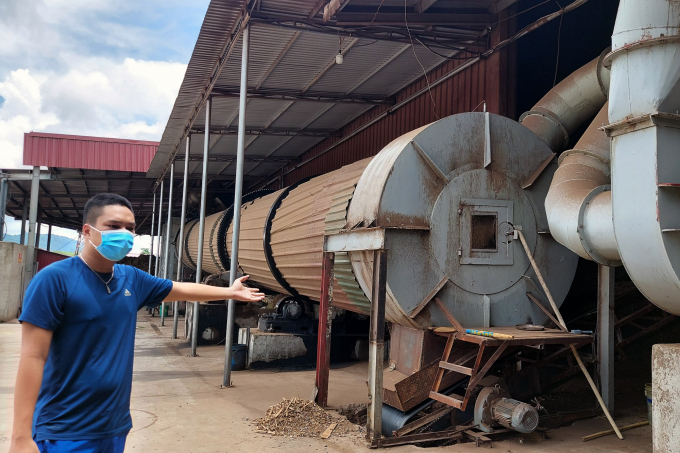
Raw materials are filtered for impurities, made into small pieces, and dried to be compressed into bio pellets. Photo: VD.
“After the pellets have been burned, the maximum ash rate must only be at 3%, the calorific value must be higher than 4,200 kl, and some other criteria must also meet the standards. We take advantage of wood processing scraps from branches, tops, bark, sawdust... to both create useful products and reduce environmental pollution. In Thanh Hoa in particular and Vietnam in general, there are many factories and wood processing facilities, so the input materials are abundant, making this a potential field. We are ready to share the technology and techniques for any unit”, shared Mr. Hai.
Regarding the fact that some units have invested in this field but then gave up, Mr. Hai said that the main reason, apart from technology, is the failure to manage labor and input factors. Manufacturers must reduce production costs to lower product prices and gradually improve product quality.
Mr. Hai added that in the near future, Thien Ly Petroleum Company will expand the production scale and improve the quality of technological lines so that the products will maintain the partners’ trust. This is also a factor that helps other industries in the forestry sector develop.
Bio pellets’ production process
By-products during forest product’s processing are brought from the storage yard to the workshop, filtered for impurities, made into small pieces then dried to the required moisture, then shaped the pellets by compression without adhesives. The most difficult thing in bio-pellet production is to ensure the percentage of ash and calorific value. The products, after sending samples for inspection, if qualified, will be transported in containers to the port for export.
/2024/04/28/2439-1-102023_460.jpg)
(VAN) Digital transformation will help export wood processing businesses reduce costs by 10%, grow by 10–20% in revenue, and increase labor productivity by more than 20%.
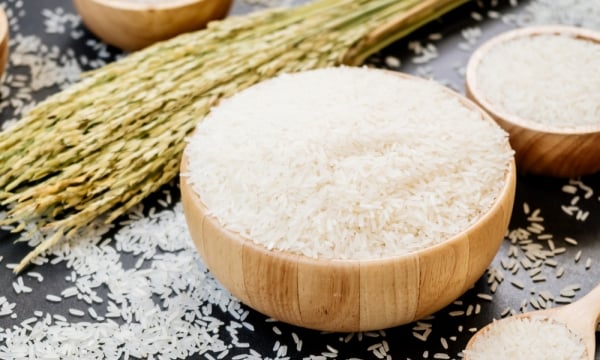
(VAN) Nearly 30 countries worldwide have imported substantial volumes of rice from Vietnam, with one country importing over one million tons valued at hundreds of millions of USD.
/2024/04/27/0800-2-090419_758.jpg)
(VAN) The biggest obstacle to developing large timber forests is the worry of forests being destroyed by natural disasters due to the prolonged exploitation cycle. Insured planted forests have created a driving force for development.
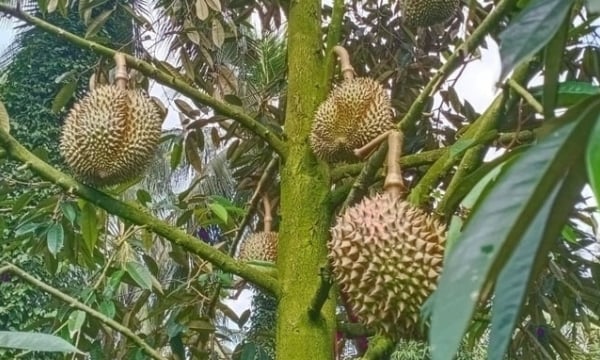
(VAN) The story of planting 30 durian trees for higher profit than 1,000 coconut trees has sparked a movement to replant mixed gardens, uprooting acacia trees to plant durian trees in Hoai An district.
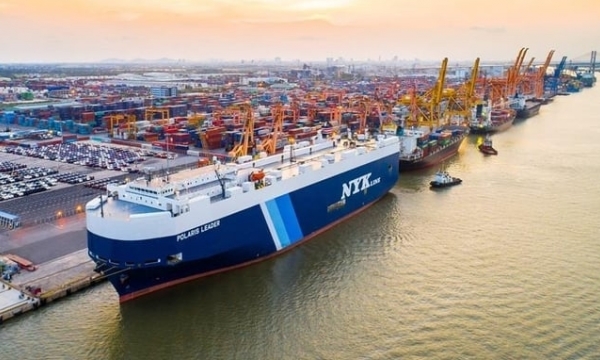
(VAN) In recent years Hai Phong has been leveraging its advantages in seaports and logistics to develop its economy and society, but there is still work.
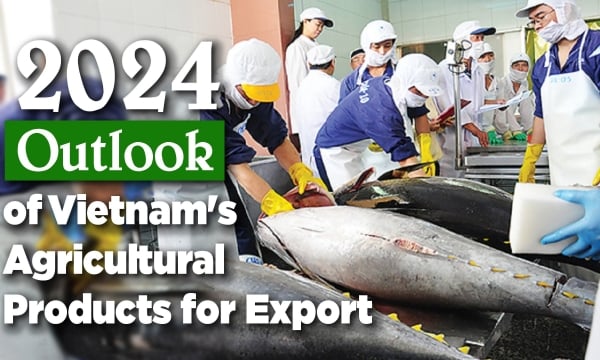
(VAN) The yellow card under the IUU Regulation, market fluctuations, fishing quotas, and new regulations must be clarified for fishing businesses when adapting.
/2024/04/24/1914-3-121559_180.jpg)
(VAN) To develop the wood industry market, export wood processing enterprises in Vietnam mainly use certified planted forest timber to be proactive about the source of clean raw materials.